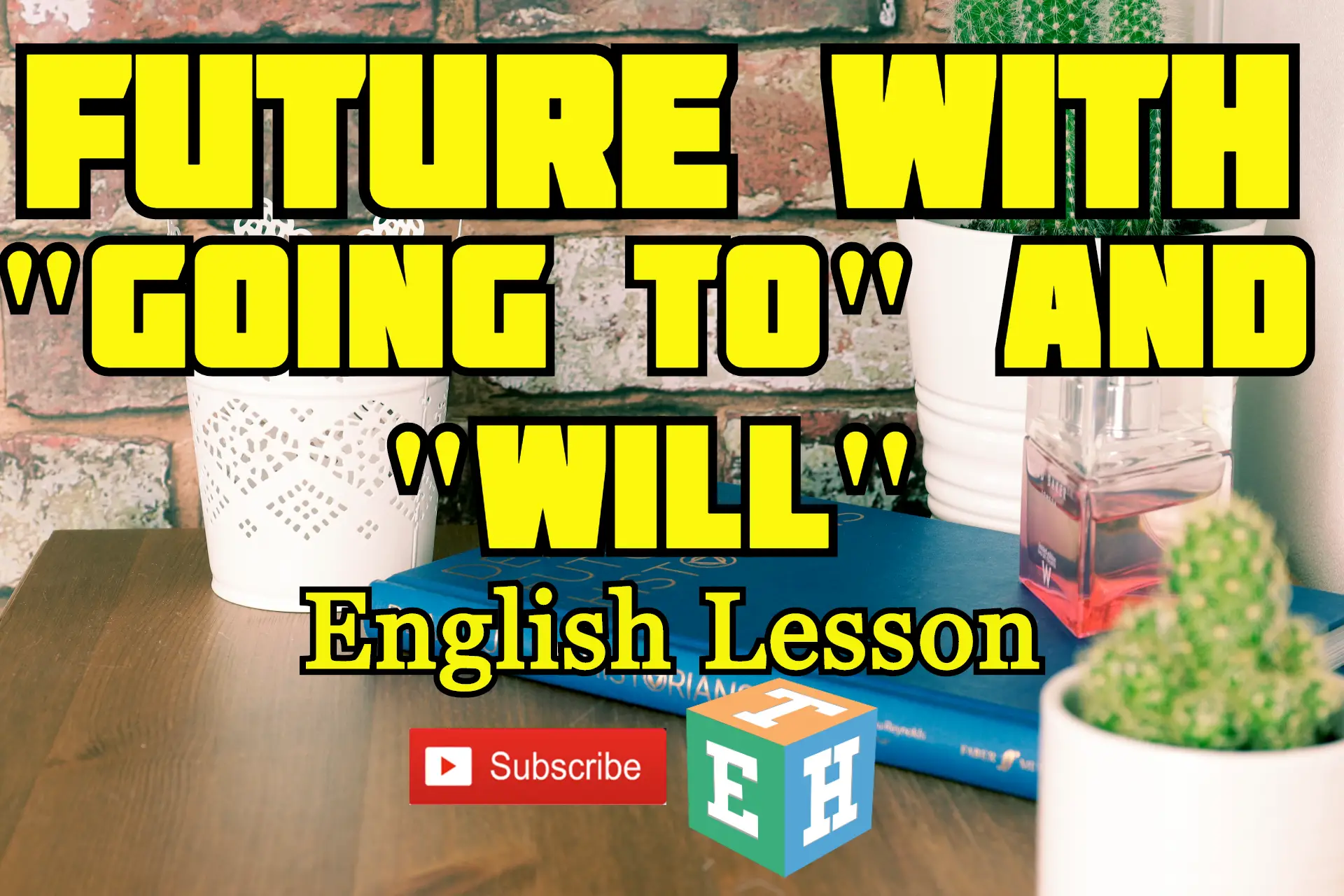Future with Going to and Will
In this set of tutorial for beginners, learners are going to enhance the ability of “future with going to and will”. What “future with going to and will” means?. How “future with going to and will” use in a sentence?.
This lesson states a clear definition to clarify for students so that they can understand the basic difference between something that is planned for the future (use of “going to”) and a spontaneous decision (use “of will”). Students first study a short dialog and answer some questions. After this students give answers to a number of questions which elicit “will” or “going to”. Finally, students get together for some small talk to practice.
I. Objective: After this lesson the students would be able to;
1. Use future with “will” and “going to”
2. Give answers to a number of questions which elicit either “will or going to’
3. Get together for some small talk practice
II. Subject Matter: Future with Going to and Will
Materials: Dialog worksheets, Questions sheets
III. Procedure/ Activities
- Pre-Activity/ Warm-up
- Start the lesson off by asking some questions with “will” and “going to”.
For example:
What are you going to do after school today?
What will you do if you don’t understand this lesson?
B. Activity Proper
1. Have the students think on the questions you asked.
Which forms did you use? Can they explain, why?
2. Distribute the “Dialog worksheets” to read through and let them answer the questions.
3. Discuss the difference of the future “going to” and “’will”
Use of going to Future
– An action in the near future that has already been planned or prepared
Example: I am going to study harder next year.
– A conclusion regarding the immediate future
Example: The sky is absolutely dark. It is going to rain.
Signal words:
-in one year, next week, tomorrow
Use of will Future
–a spontaneous decision
Example: Wait, I will help you.
-an opinion, hope, uncertainty or assumption regarding the future
Example: He will probably comeback tomorrow.
– A promise, example: I will watch TV tonight.
– An action in the future that can not be influenced,
Example: It will rain tomorrow.
Signal words:
–in a year, next… tomorrow,
4. Group Activity
1. Instruct the group to highlight the parts of the dialog that used “will’ and those that used “going to”.
2. As a group correct the questions and have a representative from each group to explain in class why certain questions used “will” and others “going to”
5. Post Activity
1. Have students write out answers to the question sheet. Go around the room to help individual students and check if students are answering using the correct form.
2. As a class, elicit answers from various students in order to give them a further chance to use these forms.
IV. Evaluation
Have the students give answers in four sentences to this question;
“What do you think will happen at school tomorrow?”
M.L. ____
I. D. ____
V. Assignment:
Write a short paragraph on your future plans for study, hobbies, marriage etc.
(Use Example: “going to”).
VI. Enrichment/ Remediation:
For slow learners you can give them simple exercises to answer like the one below.
1. When are you going to wash your clothes?
Answer: I’m going to wash them ____________.
2. When are you going to cut your hair?
3. What’s Keith going to do tomorrow?
Worksheet 1: Dialog – The Party
Sharon: What horrible weather today. I’d love to go out, but I think it will just continue raining.
Dina: Oh, I don’t know. Perhaps the sun will come out later this afternoon.
Sharon: I hope you’re right. Listen, I’m going to have a party this Saturday. Would you like to come?
Dina: Oh, I’d love to come. Thank you for inviting me. Who’s going to come to the party?
Sharon: Well, a number of people haven’t told me yet. But, Peter and Mark are going to help out with the cooking!
Dina: Hey, I’ll help, too!
Sharon: Would you? That would be great!
Dina: I’ll make lasagna!
Sharon: That sounds delicious! I know my Italian cousins are going to be there. I’m sure they’ll love it.
Dina: Italians? Maybe I’ll bake a cake…
Sharon: No, no. They’re not like that. They’ll love it.
Dina: Well, if you say so… Is there going be a theme for the party?
Sharon: No, I don’t think so. Just a get together and have fun.
Dina: I’m sure it’ll be lots of fun.
Sharon: But I’m going to hire a clown!
Dina: A clown! You’re kidding me.
Sharon: No, no. As I child, I always wanted a clown. Now, I’m going to have a clown at my own party.
Dina: I’m sure everyone will have a good laugh.
Sharon: That’s the plan!
Worksheet 2: Question Sheet
Exercise1: Follow-up Questions
1. What do they think about the weather?
2. What does Sharon have to share?
3. What are Peter and Mark going to do?
4. What does Dina offer to do?
5. How does Dina react to the news about the Italian cousins?
6. What special plan is there?
7. Why does Sharon want a clown?
8. Does Sharon know exactly how many people are going to come? If yes, how many. If not, why not?
9. How does Dina think people will react to the clown?
10. Is there a theme for the party?
Exercise 2: Questions
1. Tell me about your future plans for work or study.
2. What important event do you think will happen soon?
3. Your friend needs some help with some homework. What do you say?
4. Tell me about your plans for this coming summer.
5. Complete this sentence: If I don’t understand this exercise…
6. What do you think future English lessons will be about?
For more readings
- Quiet or quite / Confusing English words
- Expressing PREFERENCES: English Lesson
- Comparing Things with “AS” / English Grammar
- Comparative Adjectives – English Grammar Lesson
- Adjectives in English Grammar – Position in a Sentence
If you have any questions or suggestions about Future with Going to and Will, please feel free to leave a comment below or send us a message using our contact page.


